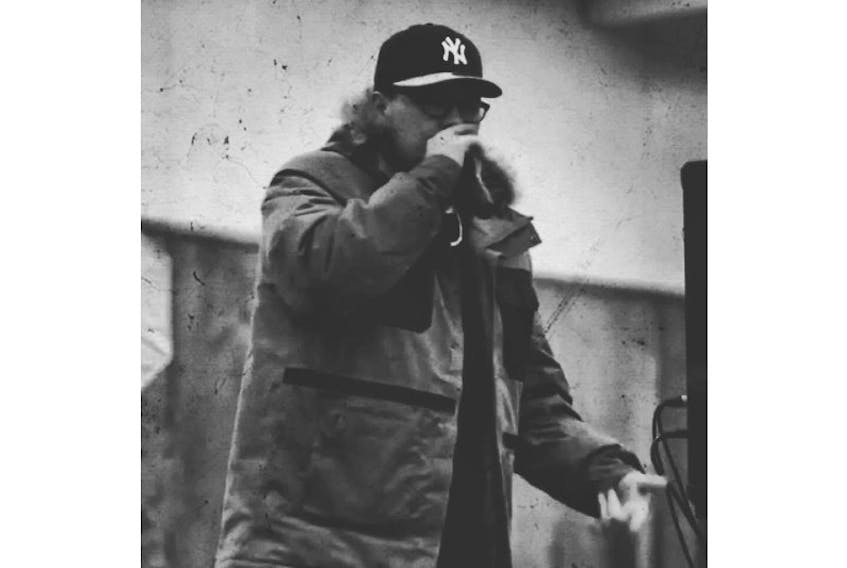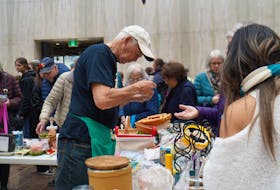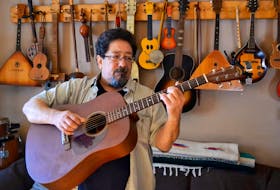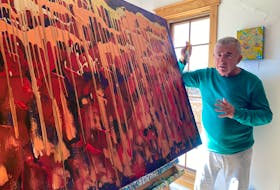Rapping felt right to Brent Jadis from the start because it gave him a creative space to be himself.
In 2011, he wrote his first rhyme and released it as a demo.
“I felt some type of connection whenever I first started recording, something that drew me in to being creative.”
He started getting more serious in 2012, putting out new material and promoting it on social media.
“I got pretty good reviews, but I got a lot of bad reviews, too, because people were so quick to judge, coming from a small Island.”
Today, Jadis, who lives in Charlottetown, has an EP, half a dozen mix tapes and four albums under the name Jay Diss.
His fourth full-length album, Rezilient, was released in February on Spotify and Apple Music.

As the album title and tracks like Stolen Land suggest, Indigenous issues and Mi’kmaq identity are some of the Rezilient’s themes.
“It means a lot to me,” he said of his heritage. “It creates who I am. It’s that identity that everyone seeks.”
That feeling is something others can benefit from, too, especially young Indigenous people, he said.
“It gives the youth of the community a voice. You can talk to these young kids and stuff like that and see how they’re doing.”
Hip-hop music is a good way to reach people on these issues, said Richard Pellisier-Lush, a fellow Mi’kmaq man and supporter of the local hip-hop scene.
“I think he always puts out a good message. I think he uses his platform.”
Pellisier-Lush, who is also a coach and youth advocate, sees Jadis as someone who can inspire Indigenous youth.
“He may not realize it, but he’s a role model for a lot of upcoming Indigenous kids that are trying to do the same thing,” he said. “People listen to the beats and they listen to the sounds and stuff. But the real professional artists, you listen to what they’re trying to say to you.”

Mental health is one of the other main topics the record deals with.
“Some of my favourite topics are anxiety. I like to talk about depression,” Jadis said. “A lot of people can connect with mental health.”
By talking about mental health in a creative way, Jadis is able to deal with his own struggles and share them with others, he said.
“It’s really a positive outlet and creative headspace where I can share my views and stuff. Even if it’s just ranting and going on profanity-wise, it’s still an outlet.”
Here are some of Brent Jadis’s top influences:
- Graffiti
- Personal struggles
- Mental health
- Family and friends
- Proving doubters wrong
- Life in general
Parker Corriveau, who is featured on the album under the name Lizleo, agrees with Pellisier-Lush about hip-hop with a message.
“Hip-hop has a beat and a voice. That is what you pay attention to,” he said. “How it can help on a personal level is if you can connect with it on a personal level.”
Corriveau got involved when Jadis reached out to him through social media.
He admires Jadis’ determination and said he has potential to become a household name.
“His dedication and passion for lyrics and beat making is awesome.”
Jadis talked about a track called Anxious from a previous album, which takes the audience inside a moment of anxiety.
“It’s based on how you’d feel if you were anxious, and it gets you into the listener’s headspace and makes them feel where an anxious person is coming from.”
Beyond the personal benefit, Jadis said speaking out about mental health is important.
“We live in a time where people are finally starting to speak out about mental health and the stigma around it, and I think it’s important that we all have a voice and people need to hear other people’s stories.”
Rezilient is available now on major streaming platforms.
Logan MacLean is The Guardian's culture reporter.









